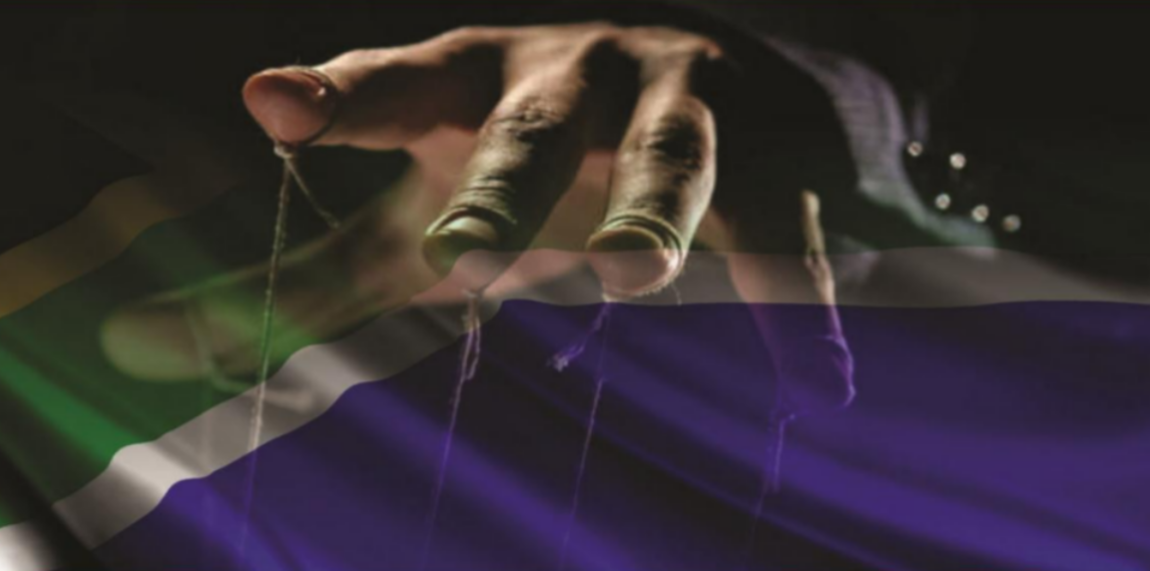An organisation of feminist and gender activists is calling for a Total Shutdown and Intersectional Women’s March Against Gender-based Violence on August 1. It is calling on all women, gender non-conforming people and the LGBTQIA+ community to stay away from work and join the protests around the country. A memorandum of demands will be presented to the government. The Daily Vox team spoke to Loyiso V Saliso, founder of Khanyisa Ikamva Projects about the planned shutdown.
How did you come up with the initiative with regards to the Total Shutdown?
We were having our discussions about the everyday reports of femicide in our country and we decided this is enough. We have been complaining about this on social media for the longest time and we had been having multiple protests and nothing has been done. All we have been seeing is a consistent increase in the rate of femicide and gender-based violence. We suggested to just mobilise to shut the whole country down and get the government’s attention because they are just too silent. We being outraged on social media and having dialogues is not working. If we shut the country down and affect the economy in some way that will grab their attention.
It started through a Facebook group. We were doing this before but in our separate capacities so we had to come together and make sure we capture the country’s attention.
What organisations are involved/have pledged their support?
We had a meeting last week with the Commission for Gender Equality and there were a number of organisations like Sisonke which is for sex workers and the Tshwaranang Legal Advocacy Centre (TLAC) was there. There were also representatives from COSATU Gender and other trade unions. Ours is that other trade unions and NGOs need to mobilise together. The organisations who were there said they were in support and were willingly to help to ensure that shutdown happens.
Why is it important to mobilise on the ground, and not just on social media?Â
It was important (to move it to the ground) because not everyone is on social media. We are trying to reach women living in rural areas and poverty-stricken women who are usually the biggest victims to these kind of things. We had to go to the ground and mobilise regional task teams who mobilise in their different areas. We had to go the ground to make sure that we reach as many people as we possibly can.
What actions are being done in the build-up to the national shutdown?
Regional and provincial teams are holding pop-up protests. In Soweto and Port Elizabeth this past weekend, there were popups at malls where they were handing out flyers and engaging community members and telling them about the total shutdown. From last week we had Black-And-Red Wednesday where we encourage women to dress up in our symbol colours. The black represents the mourning and the red is the blood as we lose women to femicide and GBV.
How has the response been to the shutdown?
The response has been amazing. Online we have a memorandum and we are asking those who will be part of the march to please contribute what they would like to see us handing over to the government. This is what we are doing to engage people and get them involved.
We are determined to get the support of the entire country. For starters, we are saying we don’t want men on the ground. Yes, they are allies but we don’t want any men on the ground on that day. We are already getting backlash from men. We have women in Lesotho and Swaziland who are going to be supporting us and joining in. Women in Botswana are also mobilising. There is great support around the world.
What is the plan of action for August 1?
We have got three major cities that are doing mass marches on the day. It’s going to be Pretoria marching to the Union Buildings. In Cape Town, it’s going to be marching to Parliament and in Bloemfontein I believe they’re going to be marching to the Supreme Court of Appeals. In KwaZulu Natal, there will be three marches in Newcastle, Pietermaritzburg and Durban. It’s not just about marching but it’s about ensuring we affect people going to work and we affect the economy from being normal. It should not be a normal day. We are trying to get rural women involved, who might not be able to march to a High Court but to get women from the close by villages and unite on that day to be part of this struggle.
How has the process been of reaching women in villages?
It is not easy reaching the women in the villages. Villages are far and currently we are working out of our own pocket. It requires those of us working in East London and Port Elizabeth to go to those areas and to engage women there which requires funding. It is a little bit of a struggle but we are not giving up on reaching those women and children. We want them to be involved.
Why are men being asked to not march on August 1?
This march is for women, gender non-conforming and LGBTQIA+. We are saying we don’t want the men there. We are saying respect that this is our struggle and just support it by not going to work, but just respect that this is our space. We know some men – because of fragile masculinity and entitlement – will force themselves to be there. We’ve discussed that we might not be able to do anything about that and we don’t want this to be a violent march. It needs to be as peaceful as possible.
Have you received any backlash from any sectors of society?
So far it’s only been the men who have been against us. This is the first time we are marching with gender non-conforming and LGBTQIA+ people. A lot of people are not informed about the community. A page has been created so that we can educate each other because we need to learn and unlearn in order for us to be accepting of each other and respect each other. We are trying to educate each other about why it is important to involve the community because they are also victims of gender-based violence and hate speech and discrimination.
What needs to happen after the shutdown?
We’ve been handing over these memorandums and we’ve been having these marches. This time it’s different because women from across the country at the same time are raising their voices. This will be an indication that this is a pure voice of all those involved in the march. After the first of August, the steering committee will continue the work and we are registering it as an non-profit organisation so that we don’t just have a movement that has one march and disappears. We are going to be so strict on the time frames that we will be giving government to at least give us some kind of feedback. We will do follow-ups if we don’t get any feedback. We are trying to get changes in the law. Even the justice system protects the perpetrator more than the victim and we want that to change.
To get involved and volunteer, you can join the closed #TheTotalShutdown group on Facebook which has a pinned post with all the Whatsapp groups in the different communities. You can also find the group on Twitter @WomenProtestSA.
Interview has been edited for clarity and brevity.









